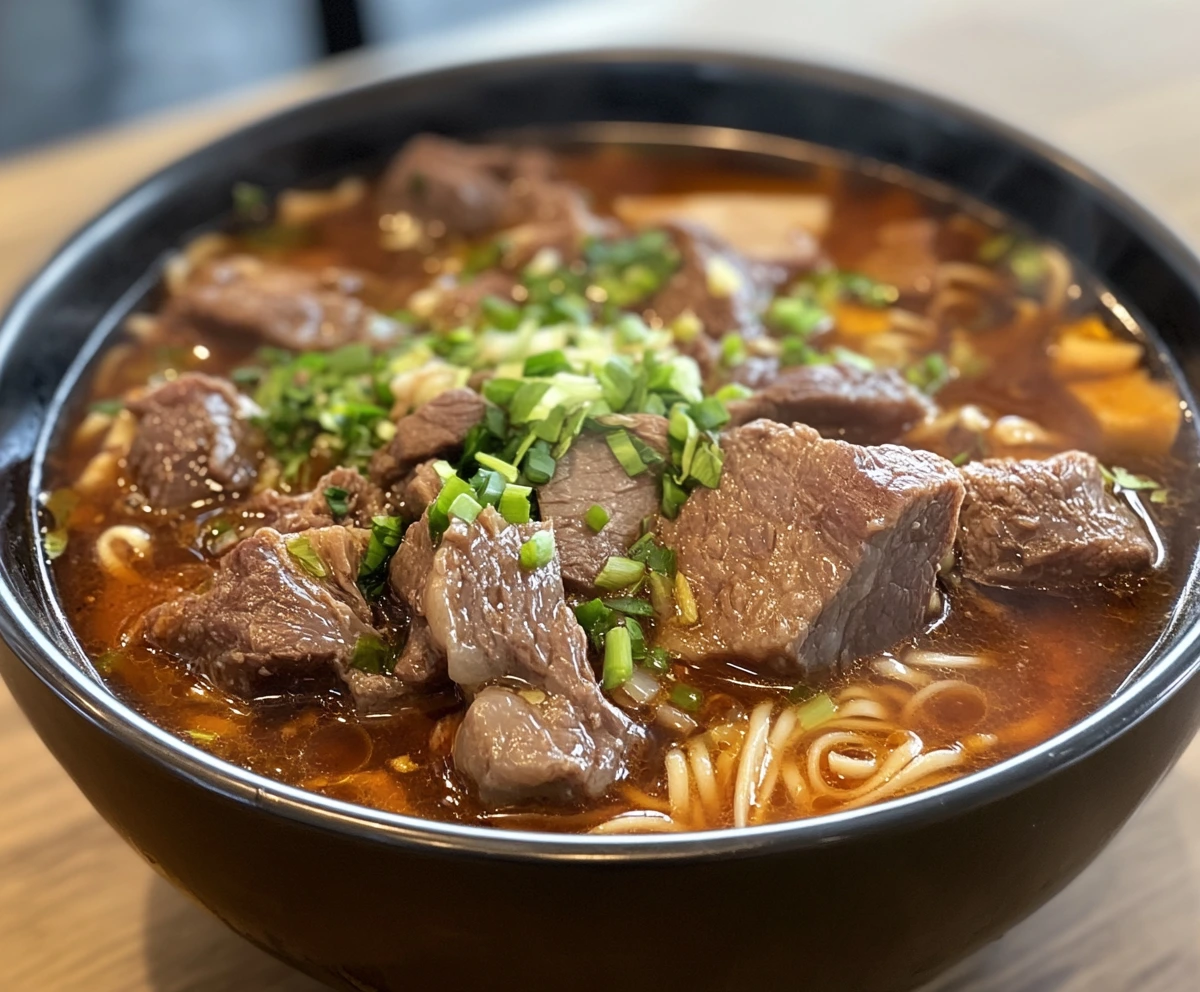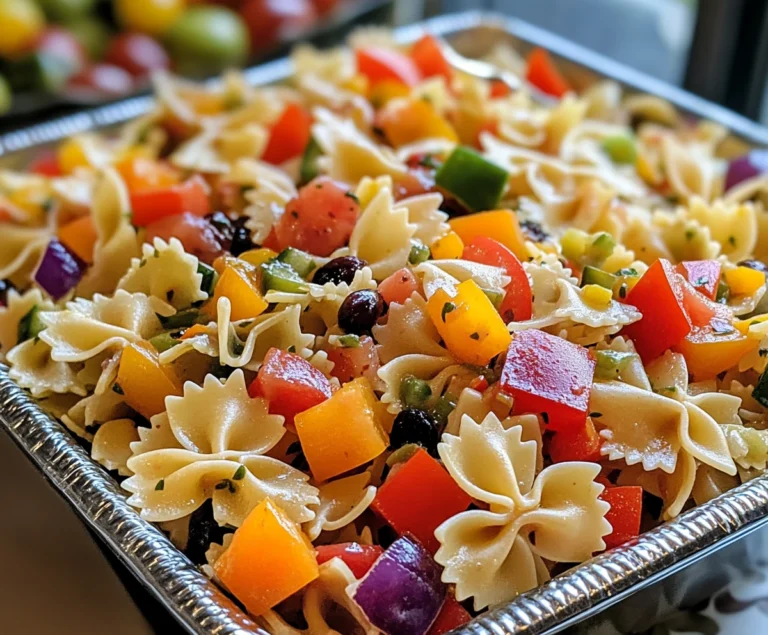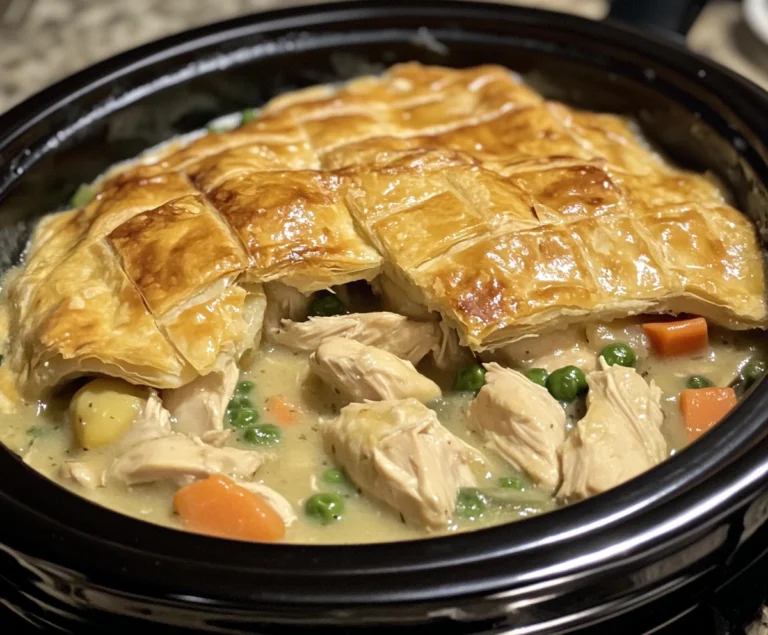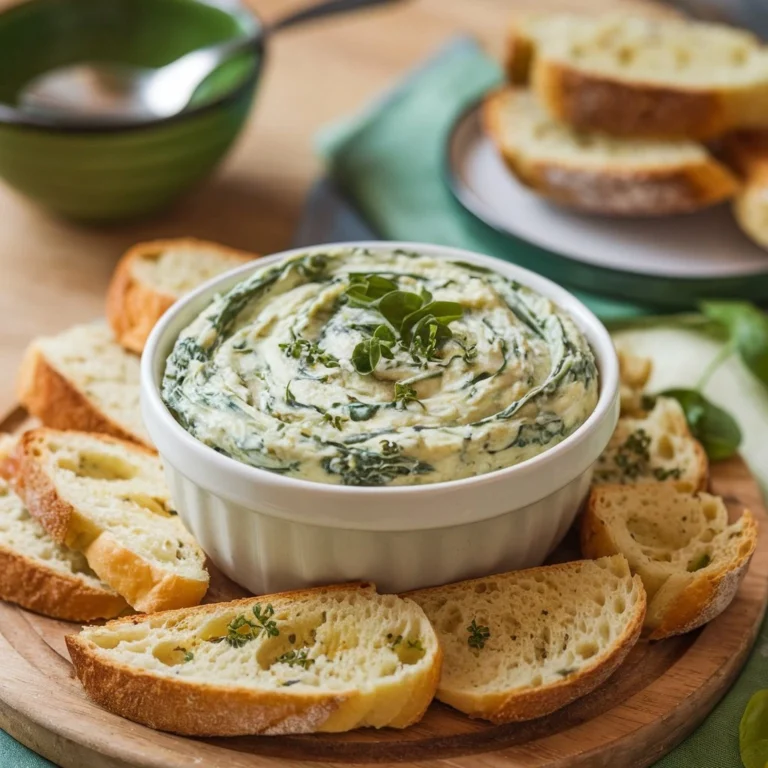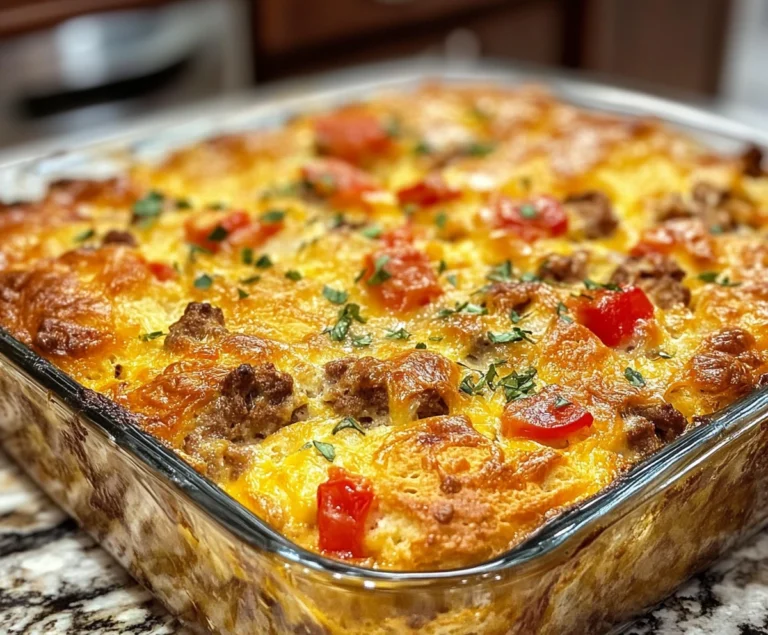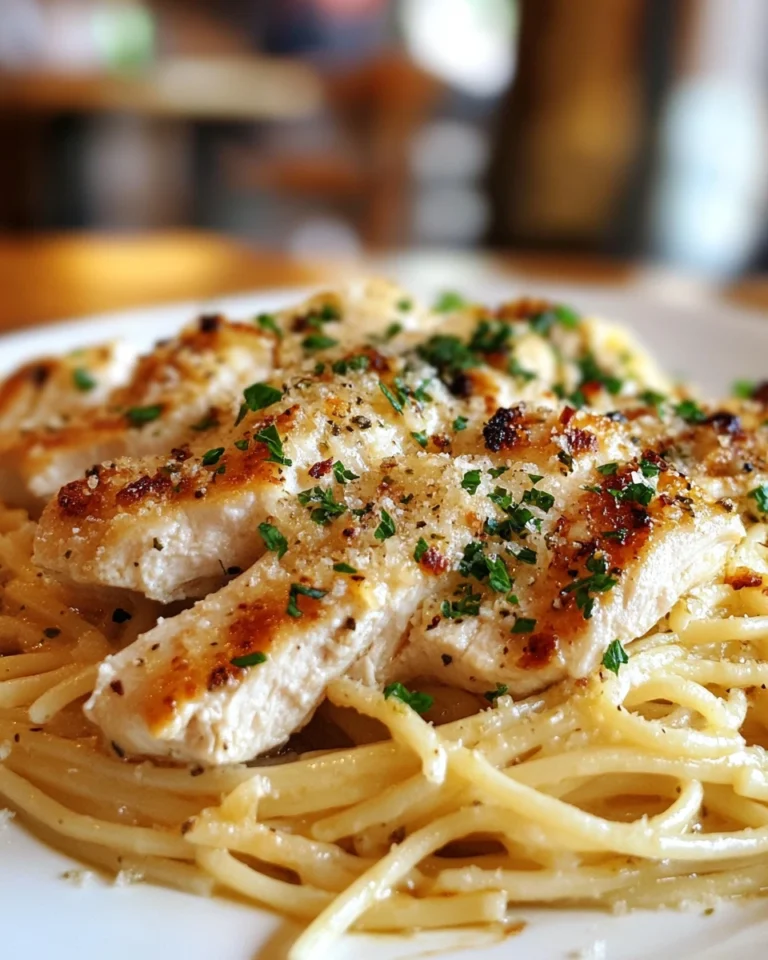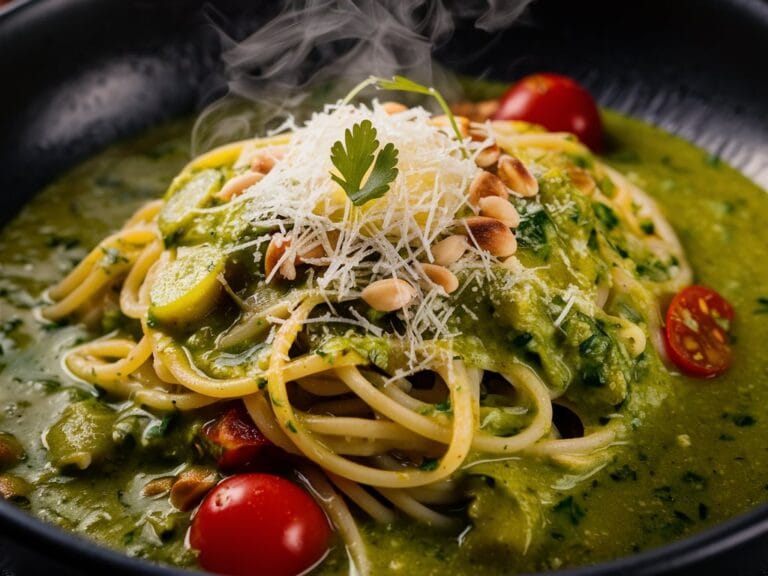Is Beef Noodle Soup Healthy? A Comprehensive Guide
Beef noodle soup is a cherished dish in many cultures, revered for its hearty and comforting qualities. From the rich, savory broth to the tender chunks of beef, it is a dish that embodies nourishment and comfort. But with an increasing focus on health and wellness, many are asking the question: Is beef noodle soup healthy? This comprehensive guide will break down the nutritional content, health benefits, and potential risks of beef noodle soup, offering tips on how to make it a healthier option for various diets.
Introduction: What is Beef Noodle Soup?
Beef noodle soup is a favorite comfort food in many cultures, but is beef noodle soup healthy? This question arises as more people focus on their dietary choices. In this article, we explore the nutritional value of beef noodle soup and answer the key question: Is beef noodle soup healthy for you?
The dish typically consists of:
- Beef: Usually cuts like brisket, shank, or short ribs.
- Broth: Often made from beef bones, spices, and vegetables.
- Noodles: Wheat-based noodles are most common, though variations like rice noodles or egg noodles are also popular.
- Vegetables: Bok choy, spinach, scallions, and cilantro are often used.
This dish is not only delicious but is also perceived as nutritious, due to its rich ingredients. However, like many meals, its healthiness depends on the preparation methods, ingredients, and portion sizes.
Nutritional Breakdown of Beef Noodle Soup
When examining is beef noodle soup healthy, it’s essential to consider the dish’s main ingredients. Beef provides essential proteins, while noodles offer carbohydrates for energy. However, is beef noodle soup healthy when consumed regularly? That depends on how it’s prepared and the portions involved.
1. Calories
A standard serving of beef noodle soup can contain between 300 to 500 calories, depending on the amount of beef, noodles, and added oils or fats.
- Homemade versions tend to be lower in calories because you have control over the amount of fat and salt used.
- Restaurant versions, particularly those with fatty cuts of beef and oily broths, can be more calorie-dense.
2. Macronutrients
- Protein: Beef is a high-protein food. A typical bowl of beef noodle soup can provide anywhere from 20-35 grams of protein, making it an excellent meal for muscle repair and overall bodily function.
- Carbohydrates: The noodles, often made from wheat or rice, contribute the bulk of the carbohydrates in the dish, ranging from 40-60 grams of carbs per serving.
- Fats: The fat content can vary widely. If using fatty cuts of beef or adding oils to the broth, the fat content can climb to 20 grams or more per serving, particularly in restaurant-made soups.
3. Micronutrients
Beef noodle soup is also rich in essential vitamins and minerals, especially:
- Iron: Beef is an excellent source of iron, which is crucial for producing red blood cells and preventing anemia.
- Zinc: Important for immune function, wound healing, and DNA synthesis.
- Vitamin B12: Found in beef, it helps with nerve function and the production of red blood cells.
- Collagen: If the broth is made from beef bones, it can be rich in collagen, which supports skin, joint, and gut health.
To further increase the nutritional value of your beef noodle soup, consider adding more vegetables. Try using this Zucchini Mushroom Recipe as a side or even mix it into the soup for extra fiber, vitamins, and minerals.
Health Benefits of Beef Noodle Soup
So, is beef noodle soup healthy when made with bone broth and vegetables? The answer leans toward yes, as bone broth supports gut health, and vegetables provide vital nutrients.
1. High in Protein
Beef is one of the richest sources of complete protein, which means it provides all the essential amino acids needed for the body’s growth and repair processes. A single serving of beef noodle soup provides between 20 to 35 grams of protein, depending on the cut of beef used and the portion size.
- Protein is essential for muscle repair, immune function, and overall cellular health.
- Including beef noodle soup in your diet can help meet daily protein requirements, particularly for those engaged in physical activities or looking to build muscle.
If you’re interested in a high-protein diet, you might also enjoy dishes like Bibibop Chicken, which offers a delicious and protein-rich alternative.
2. Bone Broth Benefits
Traditional beef noodle soup often includes a broth made from beef bones, which is not only flavorful but also highly nutritious. Bone broth is rich in:
- Collagen: Helps support joint health, skin elasticity, and gut lining integrity.
- Glycine: An amino acid found in bone broth that helps promote better sleep and gut health.
- Gelatin: Supports digestive health by repairing the gut lining.
Bone broth is also believed to strengthen the immune system, making beef noodle soup an excellent choice during cold and flu season. In fact, dishes like Baked Chicken Cutlets can also provide similar benefits when paired with a nutrient-rich broth.
3. Rich in Vitamins and Minerals
Beef noodle soup contains a wealth of micronutrients:
- Iron: Crucial for preventing anemia and maintaining energy levels, particularly for women and athletes.
- Zinc: Plays a critical role in immune function and helps fight off infections.
- B-Vitamins: Particularly Vitamin B12, which supports nerve health and energy metabolism.
Additionally, the vegetables added to the soup, such as bok choy, spinach, or scallions, provide a rich source of antioxidants and fiber, supporting overall health.
Is Beef Noodle Soup Fattening?
One concern many have with beef noodle soup is its potential to be calorie-dense or fattening. The answer depends on the preparation:
- Fat content: Beef noodle soup can be high in saturated fats if it is made with fatty cuts of beef like short ribs or brisket. These cuts add flavor but also increase the calorie and fat content.
- A healthier option is to use leaner cuts of beef, such as sirloin or round steak, which reduce the fat content while still providing protein.
- Carbohydrates: The noodles are the primary source of carbohydrates in the dish. For individuals on low-carb diets or those monitoring their blood sugar levels, noodles made from refined flour can spike insulin and blood glucose levels.
- To reduce the carb load, swap traditional noodles for alternatives like whole wheat, zoodles (zucchini noodles), or shirataki noodles.
In comparison, lighter, high-protein dishes such as Prune Cupcakes offer a more calorie-conscious option for those concerned about weight management.
Tips to Make Beef Noodle Soup Healthier:
- Use lean beef: Cuts like sirloin and flank steak are lower in fat but still high in protein.
- Increase vegetables: Adding more vegetables like carrots, bok choy, or spinach can increase fiber content and make the soup more filling.
- Reduce sodium: Restaurant versions can be very high in sodium. Opt for a low-sodium broth if you’re preparing the soup at home or check sodium content if buying pre-packaged broth.
Is Beef Noodle Soup Healthy for Specific Diets?
One of the great things about beef noodle soup is its versatility. It can be adapted to fit a variety of dietary needs:
1. Keto/Low-Carb Diet
- The primary carbohydrate source in beef noodle soup is the noodles. For those on a low-carb or keto diet, noodles can be replaced with alternatives like:
- Zoodles: Spiralized zucchini noodles.
- Shirataki noodles: A low-carb, low-calorie option made from konjac yam.
This substitution allows you to enjoy the protein-rich benefits of the beef and broth without the carb load.
2. Low-Sodium Diet
- Beef noodle soup can sometimes contain high levels of sodium, particularly in restaurant or pre-packaged broths.
- Making your own broth at home gives you control over the sodium levels, allowing you to create a healthier, low-sodium version of the dish.
For more ideas on low-sodium dishes, check out Honey Bourbon Barbecue Chicken, which offers bold flavors without overwhelming salt content.
3. Gluten-Free Diet
- Traditional beef noodle soup contains wheat-based noodles, making it unsuitable for individuals with celiac disease or gluten sensitivity. However, it can easily be adapted by:
- Using rice noodles or gluten-free pasta.
- Ensuring that soy sauce or other flavorings used are certified gluten-free.
4. Paleo/Whole30 Diet
- For those following the Paleo or Whole30 diets, beef noodle soup can still be a delicious meal. The key is to use:
- Grass-fed beef and vegetables.
- A broth made without additives or preservatives.
- Zoodles or other grain-free noodle alternatives.
The flexibility of beef noodle soup makes it a great addition to these specialized diets.
Potential Health Risks of Beef Noodle Soup
While beef noodle soup offers many health benefits, there are potential downsides, particularly when consumed in large quantities or prepared in unhealthy ways:
1. High Sodium Content
- Restaurant versions and pre-made broths can contain large amounts of sodium, sometimes exceeding the recommended daily intake in just one serving. This can contribute to:
- Hypertension (high blood pressure).
- Water retention.
- To reduce sodium intake, opt for homemade broths or low-sodium store-bought options.
2. Saturated Fats
- Beef noodle soup made with fatty cuts like short ribs or brisket can be high in saturated fats. High consumption of saturated fats is linked to an increased risk of:
- Heart disease.
- High cholesterol levels.
To mitigate this, choose lean cuts of beef and limit the use of oil or butter in the broth preparation.
3. Carbohydrate Overload
- For individuals with diabetes or those on low-carb diets, the high carbohydrate content in traditional noodles can cause blood sugar spikes. Reducing noodle portions or using low-carb alternatives like shirataki noodles can help control blood sugar levels.
Different Types of Beef Noodle Soups Around the World
While we’ve discussed the basic concept of beef noodle soup, there are many variations around the world, each with its unique flavors and nutritional profiles.
1. Taiwanese Beef Noodle Soup
- Taiwanese beef noodle soup is known for its rich, soy sauce-based broth, typically flavored with star anise, ginger, and chili oil. The dish is hearty and often includes tender, slow-cooked beef chunks.
2. Chinese Lanzhou Beef Noodle Soup
- Lanzhou beef noodle soup hails from the Gansu province of China and features a clear broth made from beef bones and spices. It is typically served with hand-pulled noodles and a variety of herbs and vegetables.
3. Vietnamese Pho Bo
- Pho, the Vietnamese counterpart to beef noodle soup, is lighter than its Taiwanese and Chinese counterparts. It features a fragrant, clear broth made from beef bones and flavored with spices like star anise, cinnamon, and cloves. Pho is often served with thinly sliced beef and a medley of fresh herbs like cilantro and basil.
How to Make Beef Noodle Soup Healthier
To make beef noodle soup healthier without sacrificing flavor, consider the following tips:
- Use Leaner Cuts of Beef: Opt for lean cuts like sirloin or flank steak to reduce the fat content.
- Add More Vegetables: Increase the nutrient density of your soup by adding a variety of vegetables like carrots, spinach, and bok choy. These vegetables not only add fiber but also a range of vitamins and minerals.
- Make Your Own Broth: Homemade broth allows you to control the sodium and fat content while avoiding preservatives commonly found in store-bought broths.
- Substitute Noodles: Instead of traditional wheat-based noodles, use whole wheat noodles, zoodles, or shirataki noodles for a low-carb option.
Conclusion
If you’re still wondering is beef noodle soup healthy, the answer is that it can be, especially when prepared with lean beef and low-sodium broth.
In conclusion, beef noodle soup can be both a delicious and nutritious meal when prepared thoughtfully. While it offers significant health benefits such as high protein content, immune-boosting broth, and essential vitamins and minerals, it’s important to be mindful of potential downsides like high sodium and fat content. By making simple adjustments such as using lean beef, adding vegetables, and opting for low-sodium broth, you can enjoy beef noodle soup as part of a balanced, healthy diet.
If you’re looking for more healthy and flavorful recipes, consider exploring options like Baked Chicken Cutlets or Honey Bourbon Barbecue Chicken, both of which offer delicious and nutritious alternatives.
With these adjustments, beef noodle soup can continue to be a comforting, nourishing meal that fits into a variety of healthy eating plans.

